The links between Key Stage 4 outcomes and geography have been back in the news.
Firstly, the Department for Education published some ad hoc statistics on Key Stage 4 outcomes by geography. This showed, among other things, that pupils living in coastal areas achieved three grades lower across the 10 subjects that make up the Attainment 8 measure.[1]
Secondly, Damian Hinds appeared to acknowledge in a speech yesterday today that the performance of pupils in London may be influenced by lots of factors in addition to the quality of its schools.
We’ve covered both coastal schools and London previously. But I think it’s worth underlining the point that analysis of educational outcomes by geography tell you more about demography than anything else.
To begin with, let’s look at Progress 8 scores from 2017. The average Progress 8 score achieved by pupils in London’s schools was 0.23 compared to -0.15 among pupils in coastal schools; a difference of -0.38. This is equivalent to almost four grades across the ten slots of Attainment 8 (including double-counted English and maths).
Now let’s look at a subset of pupils. These are disadvantaged pupils (those eligible for free school meals in the last six years) from what we have previously called “high impact groups” – those for whom being disadvantaged seems to have the greatest impact.[2]
In total, 25% of all pupils in coastal schools are classified as such, compared to 13% of pupils in London schools and 19% of pupils in schools elsewhere.
As the chart below shows, the Progress 8 scores for this group do not show much in the way of geographical variation. If there is a London (or even a big city) effect, it doesn’t seem to apply to this group.
These pupils are found in schools all across the country. This would tend to suggest that any policy to improve outcomes ought to be national in coverage. Targeting specific areas based on geography, including opportunity areas, will barely scratch the surface.
Want to stay up-to-date with the latest research from FFT Education Datalab? Sign up to Datalab’s mailing list to get notifications about new blogposts, or to receive the team’s half-termly newsletter.
[1] Although Attainment 8 is based on eight subjects, English and maths are double weighted.
[2] These are pupils a) whose first language is English and b) who are from the following ethnic groups: white, black Caribbean, mixed white/black Caribbean, refused, not obtained.


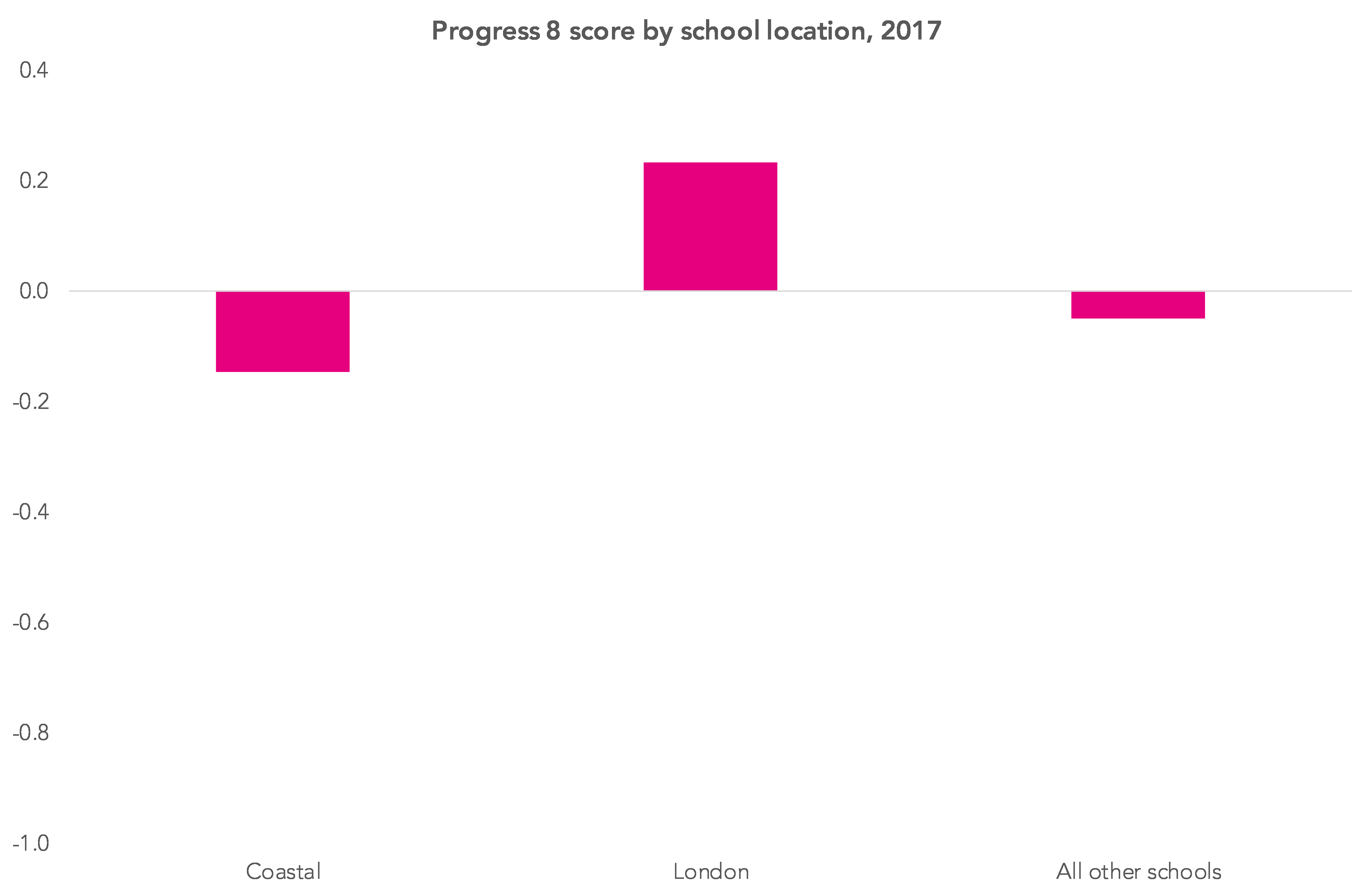
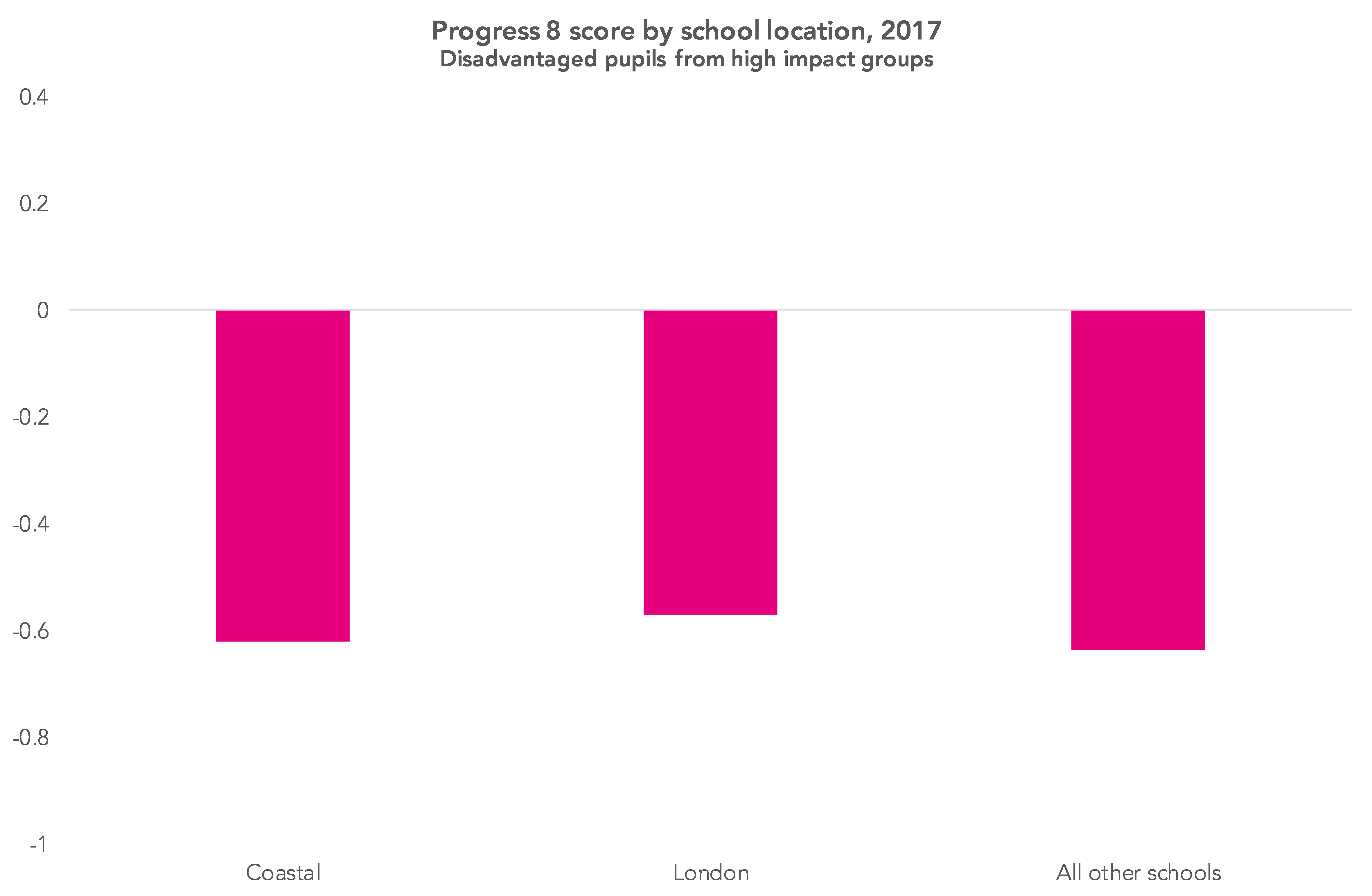
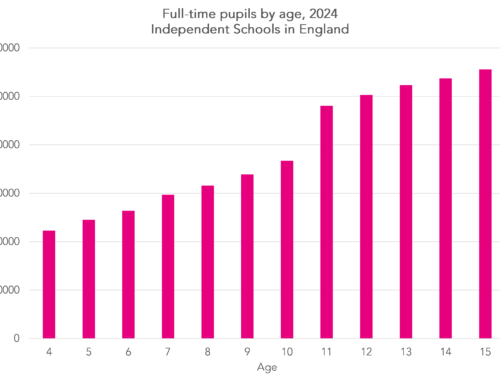
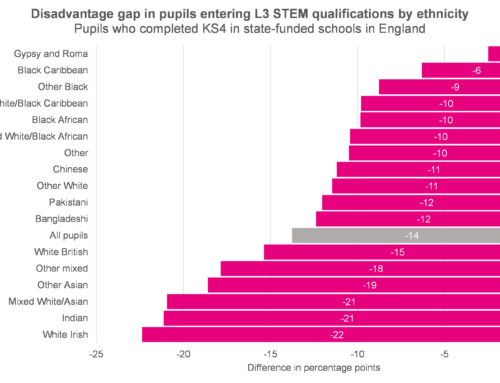
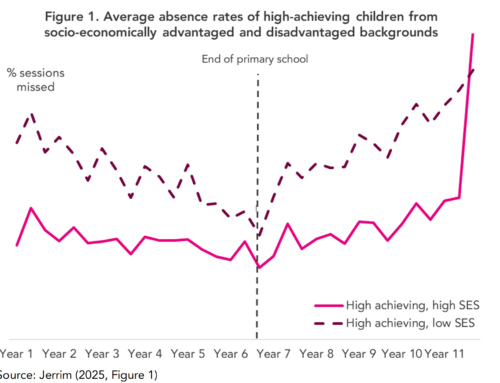


Thanks Dave – I agree, well worth revisiting. Encouraged as I am to see Mr Hinds looking at some research and thinking about it, there’s still some way to go with these key messages.